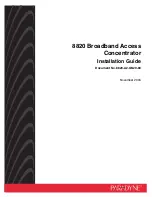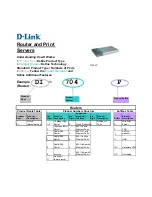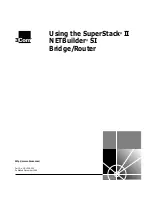
● State
Shows the status type of the entry in the internal port filter table. Here, static means that the
address was entered as a static address by the user.
● List of ports
Specify the use of the port. The following options are available:
– "-"
The port is not a member of the specified VLAN.
With a new definition, all ports have the identifier "-".
– M
The port is a member of the VLAN. Frames sent in this VLAN are forwarded with the
corresponding VLAN tag.
– U (uppercase)
The port is an untagged member of the VLAN. Frames sent in this VLAN are forwarded
without the VLAN tag. Frames without a VLAN tag are sent from this port.
– u (lowercase)
The port is an untagged member of the VLAN, but the VLAN is not configured as a port
VLAN. Frames sent in this VLAN are forwarded without the VLAN tag.
– F
The port is not a member of the specified VLAN. You can configure other settings in
"Layer 2 > VLAN > Port-based VLAN".
– T
This option is only displayed and cannot be selected in the WBM.
This port is a trunk port, making it a member in all VLANs.
You configure this function in the CLI (Command Line Interface) using the
"
switchport mode trunk
" command.
Changing Base Bridge mode
VLAN-unaware (802.1D transparent bridge) → VLAN-aware (802.1Q VLAN bridge)
If you change the Base Bridge mode from VLAN-unaware to VLAN aware, this has the following
effects
● All static and dynamic unicast entries are deleted.
VLAN-aware (802.1Q VLAN bridge) → VLAN-unaware (802.1D transparent bridge)
If you change the Base Bridge mode from VLAN-aware to VLAN-unaware, this has the
following effects:
● All VLAN configurations are deleted.
● A management VLAN is created: VLAN 1.
● All static and dynamic unicast entries are deleted.
Configuring with Web Based Management
6.7 "Layer 2" menu
SCALANCE W1780/W1740 according to IEEE 802.11ac Web Based Management
Configuration Manual, 11/2019, C79000-G8976-C485-03
263
















































